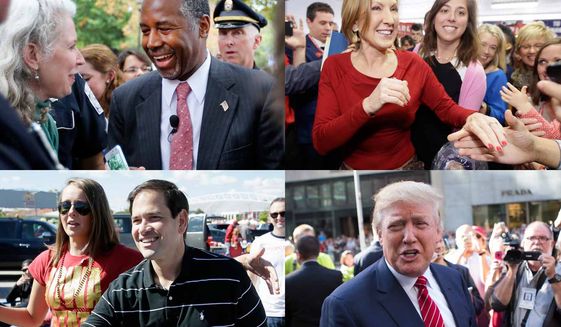This Thursday, October 15 at noon, we are asking every Tea Party Patriots supporter to visit the local office or call the Republican Congressmen from your state to tell them to choose our next Speaker wisely.
Right now, the talking heads in DC, the establishment Republicans - including outgoing Speaker John Boehner, and even one of the most liberal Democrats - Congressman Luis "Amnesty" Gutierrez are trying to have Congressman Paul Ryan coronated as the next Speaker of the House.
Congressman Ryan has often been viewed as a conservative by the mainstream media, but his record doesn't reflect our definition of conservative. Jenny Beth Martin released a statement yesterday where she laid this out.
“Specifically, his support for No Child Left Behind, the largest expansion of the federal government since Lyndon Johnson’s ‘Great Society’ – that is, Medicare Part D, the Prescription Drug bill – the bailouts, the debt ceiling, and his support of the Gang of 8 amnesty bill demonstrate that Ryan is no different than John Boehner and Kevin McCarthy, whom grassroots conservatives and the GOP conference have already rejected."
We must do everything we can to:
- Encourage the House Freedom Caucus and other Conservatives in the House to continue to stick together and stand on principles rather than a personality. Paul Ryan is a personality who is being hand-picked by John Boehner.
- Ensure the next Speaker is committed to serious reforms in the House that will decentralize the current top-down structure and allow all Members an opportunity to represent their constituents in the legislative process - Daniel Webster of Florida is the only person who has laid out such a vision and he actually implemented it as Speaker of the House in Florida.
Please plan to visit or call GOP Congressman from your state this Thursday at noon local time.
We've tried to make it as easy as possible for you to make it this Thursday. Simply visit the site, navigate the map to the nearest GOP Congressional Office, click the flag on the map to RSVP. We are working on a toolkit that will be added to the site later today and we will send you an email if you RSVP before the toolkit is finalized. The toolkit will include the following:
- Sample Letter to the Congressman
- A guide on visiting your Congressman
- Sample Tweets
- Talking points
D.C. Office Phone: (202) 225-2216
D.C. Office Fax: (202) 225-3012
Email: http://chabot.house.gov/contact/
Facebook: http://www.facebook.com/RepSteveChabot
Twitter: http://twitter.com/#!/repstevechabot
Rep. Brad Wenstrup, OH -2
D.C. Office Phone: (202)225-3164
D.C. Office Fax: (202)225-1992
Email: http://wenstrup.house.gov/contact/
Facebook: https://www.facebook.com/RepBradWenstrup
Twitter: https://twitter.com/@RepBradWenstrup
Rep. Jim Jordan, OH-4
D.C. Office Phone: (202)225-2676
D.C. Office Fax: (202)226-0577
Email: http://jordan.house.gov/contact/
Facebook: https://www.facebook.com/repjimjordan
Twitter: https://twitter.com/jim_jordan
Rep. Bob Latta, OH-5
D.C. Office Phone: (202)225-6405
D.C. Office Fax: (800)278-8203
Email: http://latta.house.gov/contact/
Facebook: https://www.facebook.com/boblatta
Twitter: https://twitter.com/boblatta
Rep. Bill Johnson, OH-6
D.C. Office Phone: (202) 225-5705
D.C. Office Fax: (202) 225-5907
Email: http://billjohnson.house.gov/contact/
Facebook: http://www.facebook.com/RepBillJohnson
Twitter: http://twitter.com/#!/RepBillJohnson
Rep. Bob Gibbs, OH-7
D.C. Office Phone: (202)225-6265
D.C. Office Fax: (202)225-3394
Email: https://gibbs.house.gov/contact-me
Facebook: https://www.facebook.com/RepBobGibbs
Twitter: https://twitter.com/repbobgibbs
Rep. Mike Turner, OH-10
D.C. Office Phone: (202) 225-6465
D.C. Office Fax: (202) 225-6754
Email: http://turner.house.gov/contact/
Facebook: https://www.facebook.com/RepMikeTurner
Twitter: https://twitter.com/RepMikeTurner
Rep. Pat Tiberi, OH-12
D.C. Office Phone: (202)225-5355
D.C. Office Fax: (202)226-4523
Email: http://tiberi.house.gov/contact/
Facebook: https://www.facebook.com/RepPatTiberi
Twitter: https://twitter.com/tiberipress
Rep. Dave Joyce, OH-14
D.C. Office Phone: (202) 225-5731
D.C. Office Fax: (202) 225-3307
Email: https://joyce.house.gov/email-me
Facebook: https://www.facebook.com/RepDaveJoyce
Twitter: https://twitter.com/RepDaveJoyce
Rep. Steve Stivers, OH-15
D.C. Office Phone: (202)225-2015
D.C. Office Fax: (202)225-3529
Facebook: http://www.facebook.com/pages/Rep-Steve-Stivers/116058275133542
Twitter: http://twitter.com/#!/RepSteveStivers
Website: http://stivers.house.gov
Rep. Jim Renacci, OH-16
D.C. Office Phone: (202)225-3876
D.C. Office Fax: (202)225-3059
Facebook: http://www.facebook.com/repjimrenacci
Twitter: http://twitter.com/#!/repjimrenacci
Website: http://renacci.house.gov













